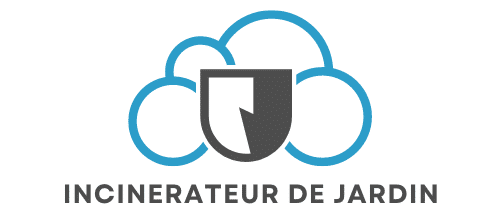How Can AI Assist UK Travel Agencies in Personalizing Vacation Packages?

As we navigate through 2024, the travel industry is undergoing a significant transformation driven by artificial intelligence (AI). The integration of AI has revolutionized various sectors, and the travel and tourism industry is no exception. UK travel agencies, in particular, are leveraging AI to offer personalized vacation packages that cater to the unique preferences and needs of their customers.
The Role of AI in Enhancing Travel Planning
AI is reshaping the way we approach travel planning by providing more precise, efficient, and customized services. When you plan a trip, several factors come into play, such as destinations, accommodations, activities, and budget. AI-driven tools can streamline this process by analyzing vast amounts of data to recommend the best options suited to your preferences.
Dans le meme genre : What Are the Best Practices for Implementing AI in UK Legal Document Review?
AI-Powered Itinerary Planning
One of the most substantial benefits of AI in the travel industry is its capability to manage itinerary planning. Machine learning algorithms can sift through millions of data points, including past travel experiences, social media activity, and online reviews. This intelligence enables AI to generate personalized itineraries that align with your interests and schedule.
For instance, if you are an adventure enthusiast, the AI system will prioritize destinations and activities that offer extreme sports or nature trails. On the other hand, if you prefer a more relaxed vacation, the AI will recommend serene beaches or tranquil countryside retreats. This level of personalization ensures that your travel experience is both enjoyable and memorable.
A lire aussi : How Can UK Sports Organizations Use AI for Performance Analysis and Injury Prevention?
Real-Time Adjustments
Another significant advantage of AI is its ability to make real-time adjustments to your travel plans. Whether it's a sudden change in weather, a flight delay, or an unexpected event, AI can quickly adapt and provide alternative solutions. This flexibility enhances your overall customer experience by minimizing disruptions and ensuring a smooth travel journey.
Enhancing Customer Service with AI and Chatbots
The hospitality industry thrives on excellent customer service, and AI has taken this to new heights. One of the most notable applications of AI in this sector is the use of chatbots. These AI-powered virtual assistants can handle a wide range of customer inquiries, from booking details to travel advice, ensuring that your questions are answered promptly and accurately.
The Rise of Travel Chatbots
Travel chatbots have become an indispensable tool for UK travel agencies. Unlike human agents, chatbots are available 24/7, providing immediate assistance regardless of the time or your location. They can handle multiple queries simultaneously, reducing wait times, and enhancing your overall service experience.
For example, if you need information about local attractions, the chatbot can quickly provide a list of popular sites, their operating hours, and user reviews. If you encounter an issue with your booking, the chatbot can assist in resolving the problem or direct you to the relevant department for further assistance. This seamless interaction not only improves customer satisfaction but also builds trust in the agency's services.
Personalization Through Machine Learning
Machine learning plays a crucial role in the personalization of customer service. By analyzing your previous interactions and preferences, AI can tailor its responses to meet your specific needs. For instance, if you frequently travel for business, the chatbot will prioritize recommendations for business-friendly hotels and services. Conversely, if you travel with family, the AI will suggest family-friendly destinations and activities.
This level of customization ensures that your travel experience is aligned with your preferences, making your trip more enjoyable and stress-free. The continuous learning capabilities of AI also mean that the more you interact with the chatbot, the better it becomes at anticipating your needs.
Leveraging Data for Better Customer Insights
Data is the backbone of AI, and its effective utilization can significantly enhance the services offered by UK travel agencies. By analyzing customer data, agencies can gain valuable insights into travel trends, preferences, and behaviors, which can be used to create more appealing vacation packages.
Data-Driven Personalization
AI systems can process vast amounts of data from various sources, including booking histories, social media activity, and online reviews. This data is then used to create detailed customer profiles, which help in tailoring travel packages to individual preferences.
For example, if the data reveals a trend of customers preferring eco-friendly travel options, the agency can develop packages that highlight sustainable tourism activities. Similarly, if there is a growing interest in cultural experiences, the agency can curate trips that focus on local traditions and heritage sites.
Predictive Analytics for Enhanced Travel Planning
Predictive analytics is another powerful tool that AI offers. By analyzing historical data and current trends, AI can forecast future travel preferences and behaviors. This predictive capability allows travel agencies to anticipate customer needs and proactively offer relevant services.
For instance, if the data indicates a spike in winter travel to ski resorts, the agency can prepare by promoting special offers and packages for these destinations. This proactive approach not only attracts more customers but also ensures that the agency stays ahead of the competition.
Boosting Revenue Management with AI
Effective revenue management is crucial for the success of any travel agency. AI can significantly enhance this aspect by optimizing pricing strategies and improving resource allocation.
Dynamic Pricing Strategies
AI systems can analyze market trends, competitor pricing, and customer demand to implement dynamic pricing strategies. This ensures that the agency's prices remain competitive while maximizing profitability. For instance, during peak travel seasons, AI can adjust prices to capitalize on increased demand, while offering discounts during off-peak periods to attract more customers.
Resource Optimization
AI can also assist in optimizing the allocation of resources, such as hotel rooms, flights, and tour packages. By analyzing booking patterns and customer preferences, AI can ensure that resources are utilized efficiently, reducing waste and increasing overall profitability. This not only benefits the agency but also enhances the customer experience by ensuring that popular options are readily available.
In conclusion, AI is revolutionizing the travel industry, offering numerous benefits to both travel agencies and their customers. By leveraging AI, UK travel agencies can provide personalized vacation packages that cater to the unique preferences and needs of each traveler. From itinerary planning and real-time adjustments to enhanced customer service and data-driven insights, AI is transforming the way we approach travel.
The use of chatbots and machine learning algorithms ensures that customer inquiries are handled promptly and accurately, while data analysis and predictive analytics help in creating more appealing and relevant travel options. Additionally, AI's capabilities in revenue management, including dynamic pricing and resource optimization, enable agencies to remain competitive and profitable.
As we move forward, the integration of AI in the hospitality industry will continue to grow, offering new opportunities for innovation and improvement. For UK travel agencies, embracing AI is not just an option but a necessity to stay ahead in the ever-evolving travel tourism landscape. By harnessing the power of AI, these agencies can provide exceptional service, enhance customer satisfaction, and ultimately, create unforgettable travel experiences.
